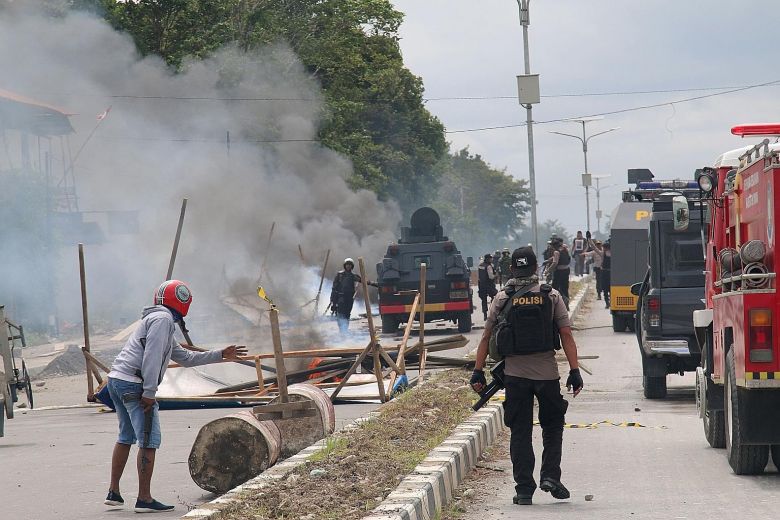Indonesia’s human rights commission called for a probe into scores of deaths in Papua on Friday after some of the deadliest violence in years swept the restive region.
Dozens were killed when riots broke out in Wamena city last month, with some victims burned alive when buildings were set ablaze, and others stabbed in the chaos.
Since mid-August, Papua has been hit by waves of mass protests and violence fuelled by racism against indigenous Papuans by Indonesians from other parts of the archipelago, as well as calls for self-rule in the impoverished but mineral-rich region.
On Friday, Indonesia’s National Commission on Human Rights (Komnas) called for a full investigation into the wave of fatalities, saying that the death toll had hit 43 in Wamena – up from an earlier 33 dead – including some victims who had been shot.
Separately, officials from the agency also said at least a dozen people had died from gunshots or illness in another part of the region after tens of thousands of Papuans were displaced by fighting between Indonesia’s military and independence-seeking rebels.
“The police must probe all these deaths,” Konmas chairman Ahmad Taufan Damanik told reporters in Jakarta Friday.
“Even if some of the alleged perpetrators are from the security forces they must also be investigated,” he added.
Indonesia ramped up its military operations in jungle-clad Papua – which shares New Guinea island with the independent nation of Papua New Guinea – following a massacre of employees at a state-backed contractor in December.
A humanitarian team comprised of public officials, NGO workers and local church leaders has said over 200 displaced people died after fleeing the fighting.
A low-level separatist insurgency has simmered for decades in the former Dutch colony after Jakarta took over in the 1960s.
A U.N.-sponsored vote to stay within the archipelago in 1969 was widely viewed as rigged, but Indonesia has long refused to consider another referendum.
Beka Ulung Hapsara, deputy chairman of the rights agency, called on Indonesia’s government to solve the crisis in Papua as President Joko Widodo gets set to kick off a second term at the weekend.
“We hope that after his inauguration as President on Sunday, (Widodo) will make Papua a priority for the government,” Beka added.
A Papua police spokesman did not immediately return phone calls seeking comment about the rights commission’s findings.
In August, protests broke out across Papua and in other parts of the country after the arrest, racial abuse and tear-gassing of dozens of Papuan students, in the city of Surabaya.



